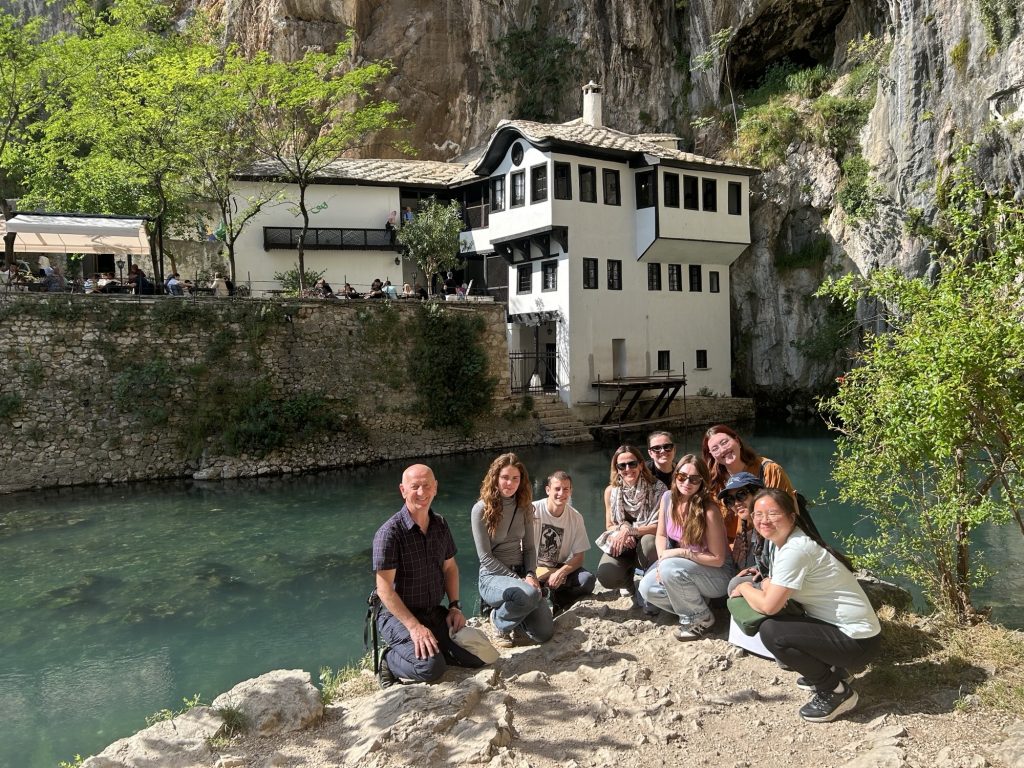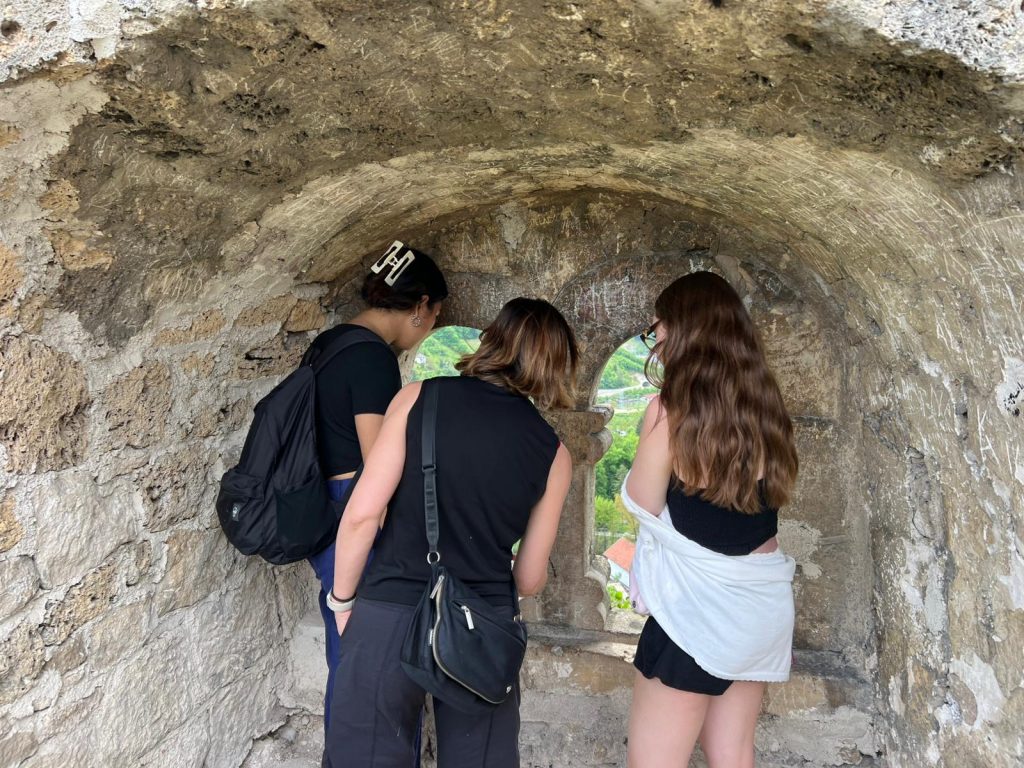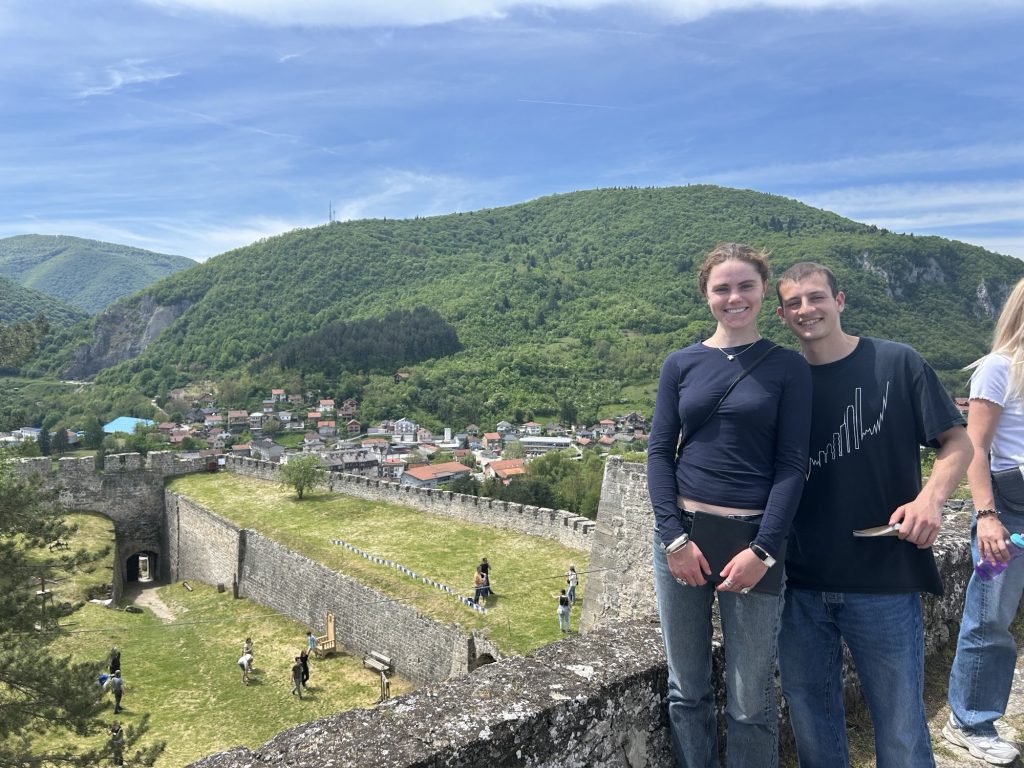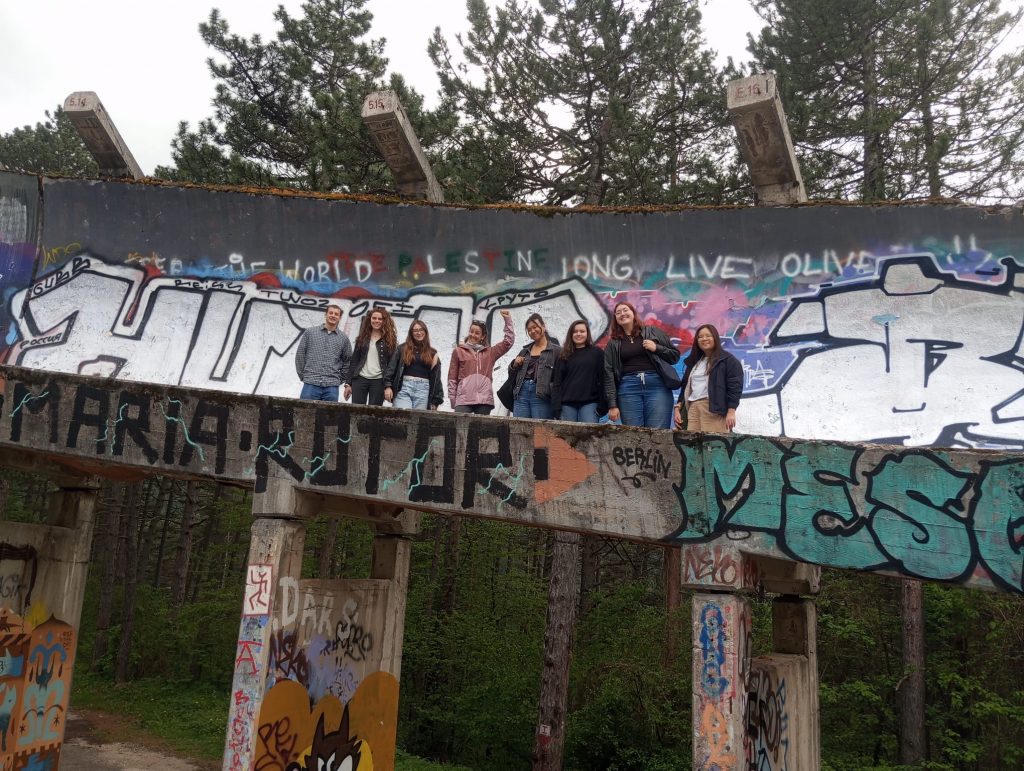The first ever Florence Center Signature Seminar, Peace and Conflict in the Balkans, took place May 1-9 after the spring 2025 semester in Florence concluded. The Balkans provide an excellent context to study how ordinary people negotiate their postwar realities, the effects of international military and humanitarian interventions, and conflicting expectations of the future.

This ten-day-traveling seminar offers an in-depth look into Bosnia and Herzegovina’s social, political, cultural, and natural environments. Students were able to reflect on and examine their own worldview, biases, and ways of life.
The seminar itself examines both Bosnia and Herzegovina and their own “homelands” in a comparative light, allowing students to realize that their way of life is one among many, and that it is connected to all others.

The course explored legacies of socialism, global policies of postwar reconstruction, reconciliation, and state-building, and environmental politics, struggles, and opportunities in the Balkans.
Excursions included visits to national parks, fortresses, museums and walking tours focusing on cultural identity, history and local living. Visits to Bihac, Banja Luka, Jajce, Mostar, Umoljani and Sarajevo encouraged discussions around local ecosystems, armed conflict and personal war experiences.
Students spent a night in a rural village, and were able to sample locally prepared food, climb mountains, explore, and discuss the effects man has on the environment. Students also had the opportunity to meet and speak to people who experienced the war in Sarajevo and Srebrenica.

“Before this trip, Bosnia was just a name on a map, something I had only read about in school or briefly heard mentioned in passing. Coming into this class, I was unsure what to expect. I had briefly heard of Sarajevo and Srebrenica, but the names did not resonate with me in the way they do now, post-trip.“
“Participating in a ten-day seminar class across Bosnia, I was not only learning about the horrific war that erupted in the country in the 1990s; I was fully stepping into a living, vibrant, breathtaking landscape marked by resilience, trauma, and beauty.”
-Signature Seminar participants

The seminar was led by Professor Azra Hromadžić, a social and cultural anthropologist specializing in international humanitarian interventions, state making and youth cultural formations; ageing, care, and social services; environment and struggle for water; and migration in the Balkans.
